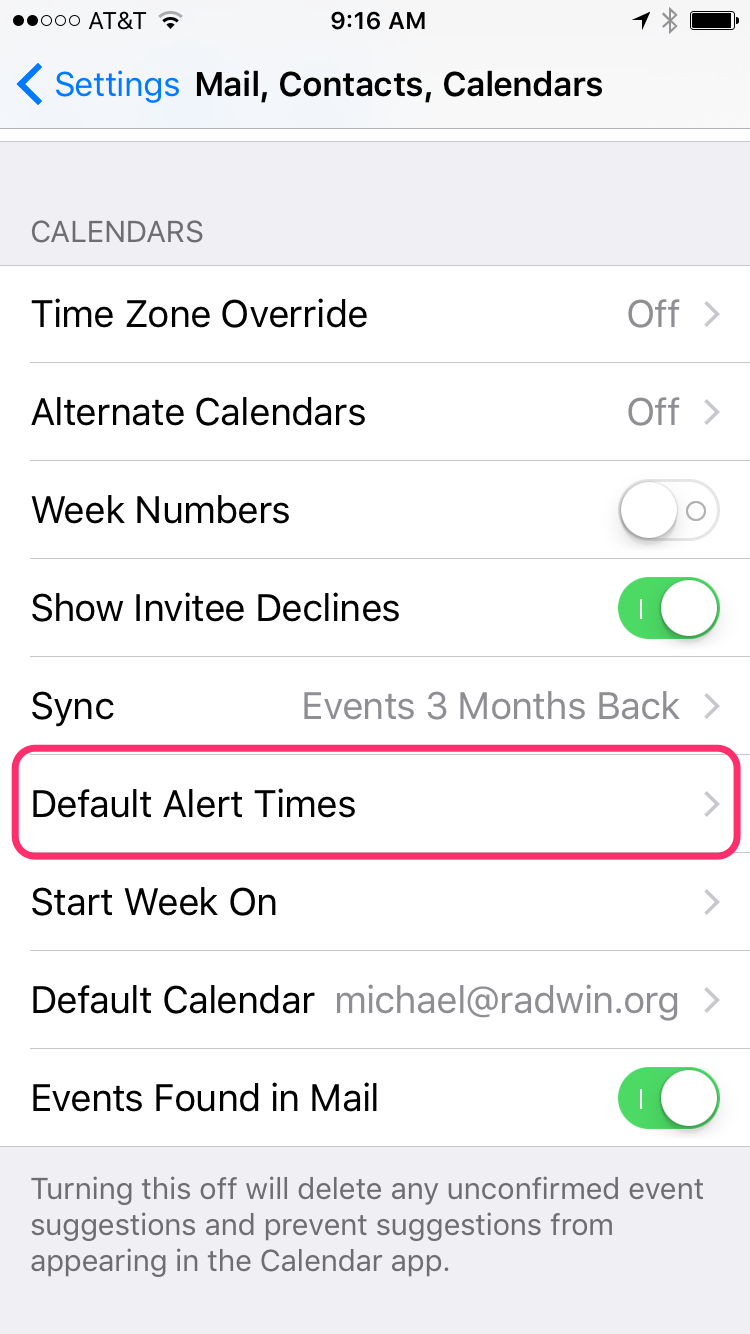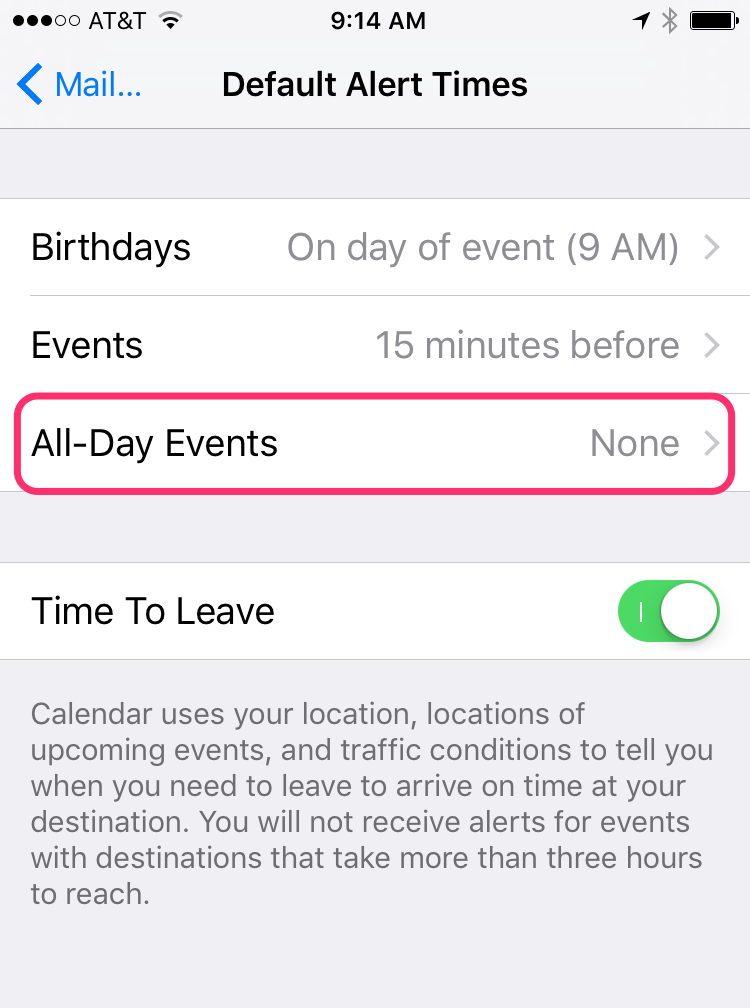Your comments
We recently added support for "perpetual" calendar feeds to Hebcal.com. Now, when you use our Add to Google Calendar feature, you will get a perpetual 2-to-5 year feed that always is based on the current Gregorian or Hebrew year.
Hi, sorry to hear that you're having trouble with default notifications on the iPhone calendar. Our calendar feeds do not specify any alarms.
We'd recommend going to Settings, then Mail, Contacts, Calendars, then scroll down to the Calendars section and choose Default Alert Times:

Then be sure to check None for All-Day Events

The XML version now includes the parashat haShavua.
https://www.hebcal.com/converter/?cfg=xml&gd=28&gm=12&gy=2015&g2h=1
<hebcal> <gregorian year="2015" month="12" day="28"/> <hebrew year="5776" month="Tevet" day="16" str="ט״ז בְּטֵבֵת תשע״ו"/> <events> <event name="Parashat Shemot" href="http://www.hebcal.com/sedrot/shemot"/> </events> </hebcal>
The Hebrew Date Converter REST API already supports this.
https://www.hebcal.com/home/219/hebrew-date-converter-rest-api
For example, if you use this URL
http://www.hebcal.com/converter/?cfg=json&hy=5749&hm=Kislev&hd=25&h2g=1
You will get this response:
{"gy": 1988,"gm": 12,"gd": 4,"hy": 5749,"hm": "Kislev","hd": 25,"hebrew": "כ״ה בְּכִסְלֵו תשמ״ט","events": ["Parashat Miketz","Chanukah: 2 Candles"]}
Notice that the Parashat haShavuah is contained in the events array.
We typically light candles 18 minutes before sunset in most of the world, but 40 minutes before sunset in Jerusalem.
When you specify Jerusalem using the typical URL in Hebcal, you get the special 40-minutes-before-sundown feature automatically.
If you are going to specify candle-lighting times with our API by latitude, longitude and time zone and you want to specify 40 minutes before sundown for Jerusalem, be sure to specify b=40 in the URL (overriding the default b=18).
Yes, you can use the Jewish calendar REST API to get only parashat haShavuah for an entire year like this:
The s=on means Parashat haShavuah. The other features (major holidays, minor holidays, etc) are all set to "off"
We hope to release a feature in the future to allow uploading a CSV file to the Yahrzeit calculator. In the meantime you can use this link to enter up to 20 names
We've added support for candle-lighting times to our Jewish Holiday REST API. For example:
More documentation on that API is here:
Customer support service by UserEcho


We recently added support for "perpetual" calendar feeds to Hebcal.com. Now, when you use our Add to Google Calendar feature, you will get a perpetual 2-to-5 year feed that always is based on the current Gregorian or Hebrew year.